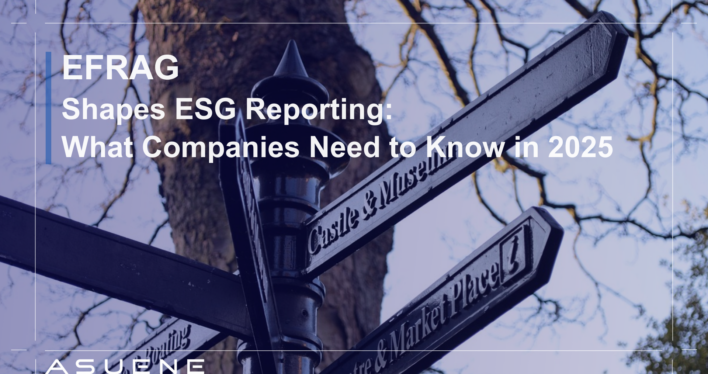- Article Summary
-
As environmental, social, and governance (ESG) reporting becomes central to corporate accountability and investor transparency, the European Financial Reporting Advisory Group (EFRAG) is emerging as a key institution shaping the future of sustainability disclosures. In 2025, EFRAG’s influence has grown significantly due to its leadership role in developing the European Sustainability Reporting Standards (ESRS) under the EU’s Corporate Sustainability Reporting Directive (CSRD). This article explores EFRAG’s evolving mandate, its technical priorities in 2025, and what companies must understand to prepare for upcoming changes in ESG disclosure expectations.

EFRAG at the Center of EU Sustainability Policy
EFRAG is an independent advisory body originally tasked with providing technical advice on financial reporting. Since 2022, it has also served as the technical developer of the ESRS, acting under the European Commission’s oversight.
| Role | Description |
|---|---|
| Technical Advisor | Develops sustainability standards in alignment with EU Green Deal and CSRD |
| Stakeholder Engagement | Consults with industry, civil society, and regulators across Europe |
| Standard-Setter | Issues drafts and final ESRS for corporate use |
| Harmonizer | Coordinates with global initiatives like ISSB, GRI, and TCFD |
EFRAG’s dual mission—financial and non-financial reporting—places it at the core of the EU’s goal to standardize and elevate ESG disclosures across sectors and company sizes.
Key Developments in 2025
In 2025, several developments underscore EFRAG’s growing impact:
- Finalization of Sector-Specific ESRS
EFRAG is rolling out tailor-made reporting standards for sectors like energy, agriculture, and finance, making disclosures more relevant and decision-useful. - Simplification Mandate from the Commission
In response to regulatory burden concerns, EFRAG has been tasked with streamlining general ESRS disclosures, particularly for smaller companies. - Interoperability Initiatives
Collaboration with the International Sustainability Standards Board (ISSB) is ongoing to align EU standards with global expectations, reducing duplicative reporting. - SME Voluntary Standards
EFRAG is also managing the development and finalization of the VSME, designed to support non-listed SMEs through simplified ESG reporting.

What Companies Need to Watch
Companies preparing for or already reporting under CSRD should monitor the following developments:
| Priority Area | What to Track |
| Sector Standards | Tailored metrics and disclosures for your industry |
| Technical Updates | Revisions to double materiality and value chain definitions |
| Timeline Shifts | Implementation delays or phase-ins announced by EU bodies |
| Interoperability Guidance | Updates on alignment with ISSB/GRI frameworks |
Understanding EFRAG’s public consultations and feedback mechanisms can also offer companies a voice in shaping future iterations of the ESRS.
Practical Implications for Corporate ESG Teams
For ESG officers and sustainability professionals, engaging with EFRAG-driven updates means:
- Updating Internal Controls to reflect evolving metrics and reporting structures
- Training Staff across legal, finance, and operations to handle ESG-related data
- Integrating ESRS into Software Tools such as ESG dashboards and audit platforms
- Enhancing Stakeholder Dialogue using ESRS-aligned sustainability reports
Companies may also need to reassess their materiality assessments and double materiality methodology in light of EFRAG’s latest technical clarifications.
Conclusion
EFRAG is no longer a behind-the-scenes player—it is now a primary architect of Europe’s sustainability reporting future. Its work in 2025 will define how thousands of companies disclose ESG performance, interact with investors, and demonstrate accountability to society.
For companies across Europe and beyond, understanding EFRAG’s evolving role is not just advisable—it’s essential. Those who engage early and proactively will be best positioned to lead in the new ESG era.
Why Work with ASUENE Inc.?
Asuene is a key player in carbon accounting, offering a comprehensive platform that measures, reduces, and reports emissions, including Scope 1-3, with expertise in decarbonization. Asuene serves over 10,000 clients worldwide, providing an all-in-one solution that integrates GHG accounting, ESG supply chain management, a Carbon Credit exchange platform, and third-party verification.
ASUENE supports companies in achieving net-zero goals through advanced technology, consulting services, and an extensive network.


